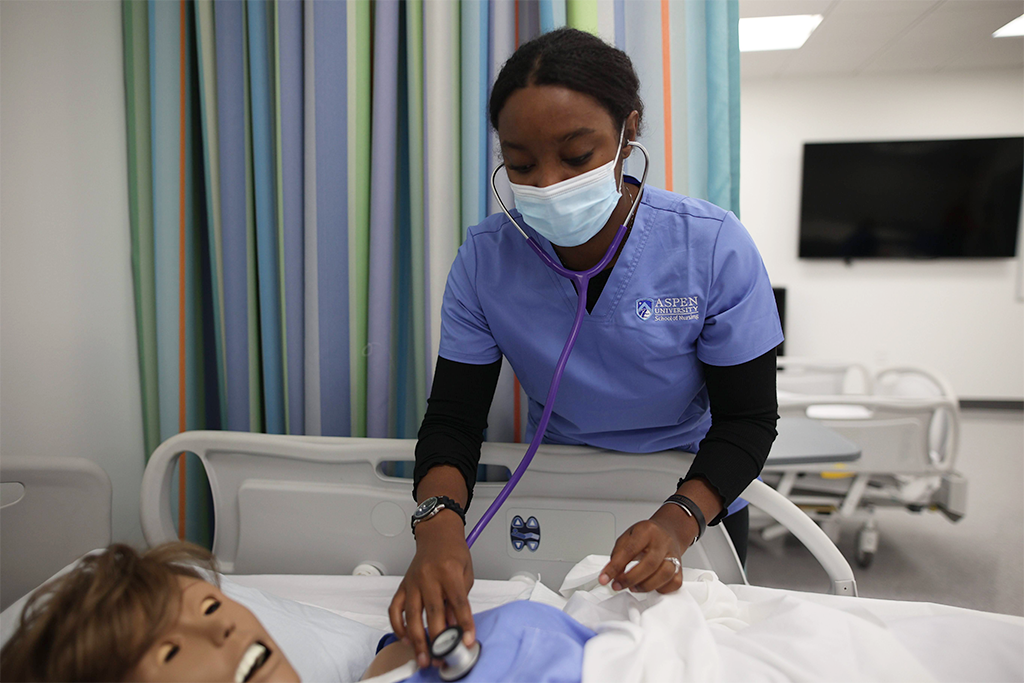While there are many degrees in nursing and education routes, from hospital training programs to accelerated bachelor’s degree and MSN bridge programs, the most common degree for nurses in the hospital setting has traditionally been an associate’s. But the nursing field is shifting, and now registered nurses (RNs) with a Bachelor of Science in Nursing (BSN degree) are in high demand.
As of 2018, the American Association of Colleges of Nursing estimated that up to 43% of hospitals have started to require a BSN. And 81% of employers are expressing a strong preference for BSN program graduates. As this trend continues, most employers will likely require a BSN for all nursing staff.
How can nurses capitalize on the industry preference for a BSN degree? And, what are the actual benefits of getting this degree for the individual nurse, the organization, and your patients? Read on to see why earning a BSN degree may be the best choice for your career.
Benefits of a BSN degree for nurses
While employers are moving toward requiring staff to obtain a BSN, the degree can also benefit nurses themselves, increasing salary and career opportunities exponentially. For example:
1. More employment options. It’s estimated that BSN-prepared nurses have a 6% higher employment rate after graduating compared to RNs with an associate’s degree. In the United States, there are over 100,000 annual job openings for BSN-prepared nurses compared with 65,000 openings for associate-prepared nurses.
2. Potential to earn more. BSN nurses are more likely to get higher bonuses, have higher salaries, and have a more rapid rate of increase in salary with each year of experience in the nursing field. According to Payscale, the national average annual salary for ADN nurses is $69,537 while the average annual salary for BSN-prepared RNs is $85,246.
3. Opportunities for career growth. BSN-prepared nurses can train in specialty areas such as pediatrics or women’s health and managerial and leadership skills. With an increase in education, different career opportunities will be available—so nurses can specialize in the types of nursing they feel most passionate about.
4. Advanced knowledge. Patients feel the difference when their nurses have advanced knowledge. BSN programs feature deep dives into topics such as:
- Physical assessment skills
- Anatomy and physiology
- Pathophysiology
- Advanced pharmacology
- Chemistry
- Nursing practice and philosophy
BSN programs often provide in-depth instruction on using this knowledge through critical thinking exercises and problem-solving. Sharpening these clinical and critical thinking skills will prepare you to use evidence-based research and develop better care plans. Even if you’re a seasoned registered nurse, you can still develop new skills through RN to BSN programs.
5. Remote learning opportunities. Increasing your educational credentials is possible while holding a full-time job or nursing position. Some BSN programs now offer part-time or full-time online coursework, providing students with more flexibility in their classwork and schedule. That’s why Aspen University provides online learning opportunities for nursing students through the RN to BSN program. And our classes start every two weeks, so we’re ready when the time is right for you to earn a BSN.
How healthcare organizations benefit from nurses having BSN degrees
Hospitals or other healthcare organizations also profit from hiring BSN-prepared nurses:
1. Evidence-based practice. Baccalaureate nursing programs provide nurses with extensive training regarding evidence-based practice and improvement projects throughout the curriculum. Hospital units with more BSN nurses are more likely to have journal clubs, other committees, and quality improvement, helping individual nurses reach their full potential.
2. Better quality patient care. Data shows that health care facilities with higher percentages of BSN nurses have significantly lower rates in mortality and readmission and shorter stays for patients. This also results in fewer lawsuits regarding malpractice, reducing liability for all parties.
3. Magnet designation. Magnet status is an award given by the American Nurses Credentialing Center (ANCC) to hospitals that satisfy specific standards for patient care and nursing quality. The magnet certification requires nurse improvement projects and a certain percentage of the hospital’s nurses to have BSN degrees. Hospitals with the magnet designation also have less nurse turnover.
4. Provider stability. Hospitals can maintain a financially stable outlook with less nurse turnover, better patient care and outcomes, increased patient-related income, and less money spent on malpractice lawsuits. This stability is especially important in chronically underfunded settings.
How patients benefit from BSN degree-prepared nurses
Patients truly benefit from the expertise of nurses who have a BSN:
1. Higher skilled nurses. BSN nurses are proficient in the skills they obtain in the program. Having in-depth training in critical thinking and case management helps prevent complications while improving patient comfort and confidence during procedures and hospital stays.
2. Improved patient outcomes. Research shows that patients treated by BSN nurses are less likely to suffer complications during or after their hospital stays and have lower mortality rates.
3. Stronger patient education. BSN nurses have been shown to offer better education to their patients. Since BSN nurses have additional training, they themselves are better teachers. Wound care and proper medication use are just two areas where increased knowledge and higher levels of patient communication expertise pay off for patients.
As nurses, we strive to provide the best care to our patients, and obtaining a BSN degree helps do just that. The higher level of care provided by BSN-trained nurses is one reason this degree is becoming more common and may someday be a standard requirement across the industry.
Are you interested in obtaining your BSN? Check out Aspen’s RN to BSN program.
 Alison Shely is a nurse practitioner, nurse coach, and nurse content writer. She has been in nursing since 2014, working in intensive care, women’s health, and primary care as a registered nurse and family nurse practitioner. Her specialty topics include mental health, health and wellness, yoga philosophy and practice, and community health. Alison also serves as a health coach and mentor to other nurses and healthcare workers concerning healthy lifestyles and mental health. Visit her website to learn more.
Alison Shely is a nurse practitioner, nurse coach, and nurse content writer. She has been in nursing since 2014, working in intensive care, women’s health, and primary care as a registered nurse and family nurse practitioner. Her specialty topics include mental health, health and wellness, yoga philosophy and practice, and community health. Alison also serves as a health coach and mentor to other nurses and healthcare workers concerning healthy lifestyles and mental health. Visit her website to learn more.
This article was updated in October 2024.

